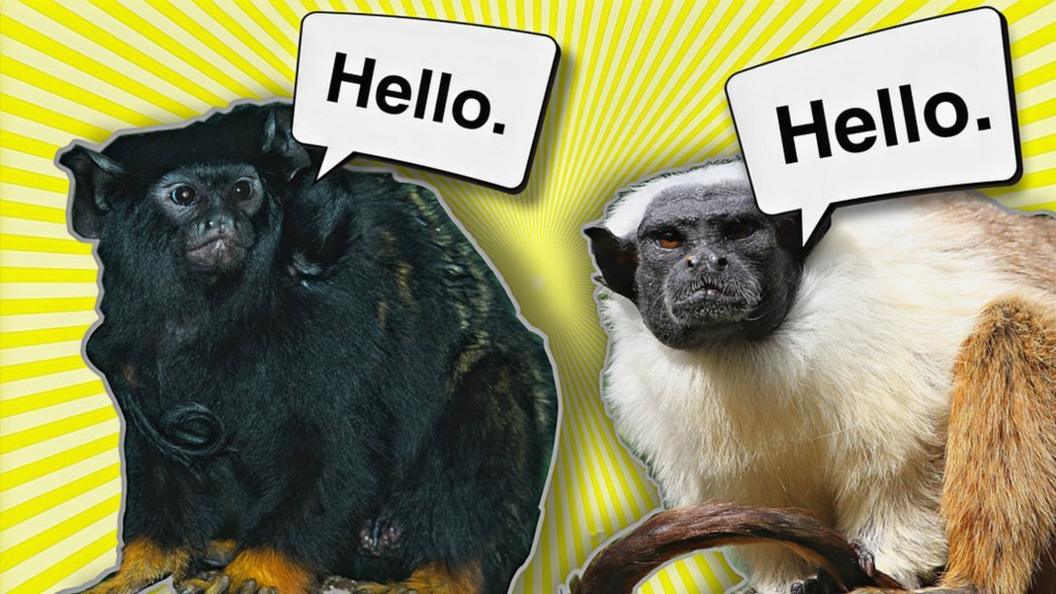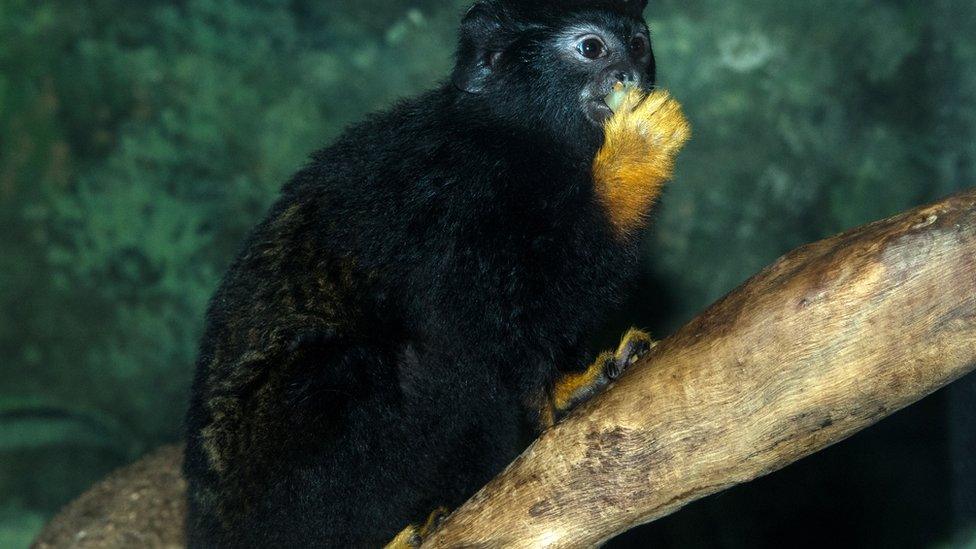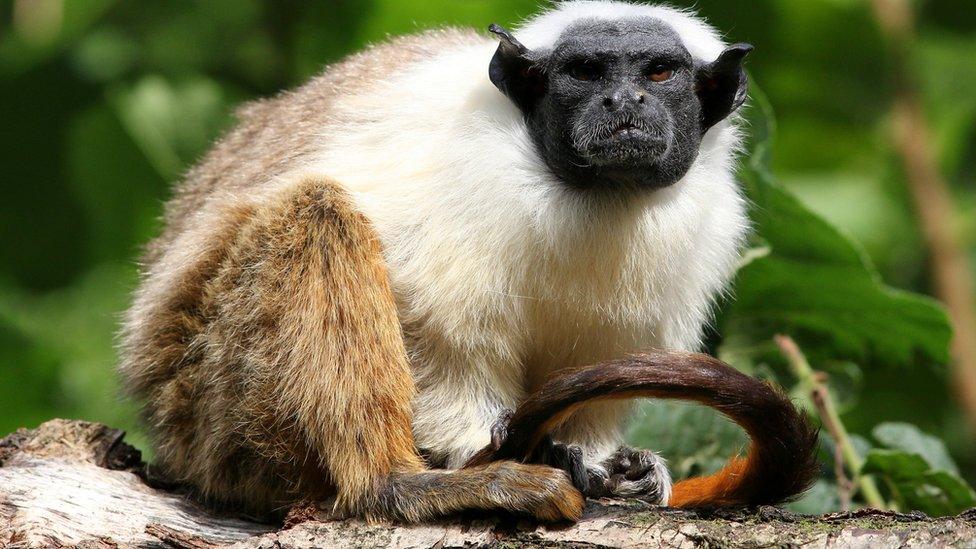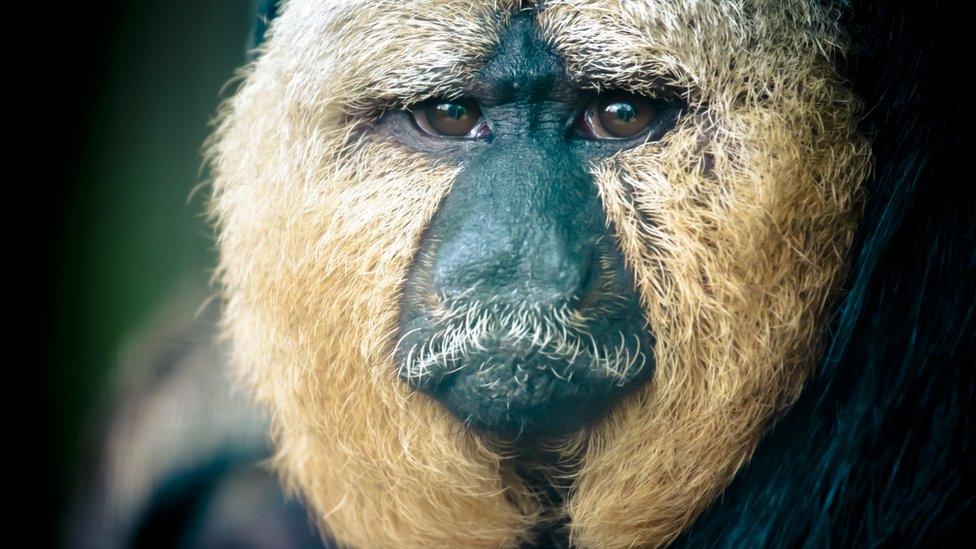Tamarin monkey changed 'accent' to avoid fights with other species
- Published
- comments

Have you ever used different words, or changed your accent when spending time with people from other places? Well turns out some monkeys do the exact same thing.
When going into new areas, red-handed tamarins will change their accent to mix with the other monkeys living there.
Scientists from the Anglia Ruskin University in Cambridge made the discovery after examining the behaviour of 15 groups of tamarin monkeys living in the Amazon rainforest in Brazil.
They found that the red-handed tamarins changed the noises they make to long calls when entering the territory of pied tamarins. In doing so they avoided fights over living space and food.

The red-handed tamarin change their calls to avoid fights with their neighbours
Dr Jacob Dunn, associate professor in Evolutionary Biology at Anglia Ruskin University explained that because these tamarin species rely on similar resources, changing their 'accents' can avoid conflict.
"The red-handed tamarin call becomes much more like the pied tamarin's - and we think that the reason they do this is because when you're in this shared area and you're a closely related species, you're very likely to come into competition over resources, because you've got a similar diet and habitat requirements," Dunn said.
The monkeys which are about the size of a squirrel can't use words as such, but instead call out with high pitched noises used to communicate about things like their territory or to warn each other of dangers such as predators.
The red-handed tamarin cannot learn new calls, but can adjust their calls to fit in with other species.
They can sort of change the noise a bit, but essentially they're still saying the same 'words'.
Comparing it to how people in Britain say tomato, and how Americans pronounce it 'tom-ay-toe', Dr Dunn said that the two species practically speak the same language, but they need to understand each other's 'accents'.
"They might need to say 'tom-ah-toe' instead of 'tom-ay-toe'," he explained. "And so they're kind of playing around - they can make the call longer or slightly higher or lower frequency, or a bit harsher or a bit more tonal. They can sort of change the noise a bit, but essentially they're still saying the same 'words'."
Accent change is a one-way thing

Pied tamarins are critically endangered
Pied tamarins are critically endangered and most of the species lives all in one area - near the Brazilian city of Manaus.
But, unlike the red-handed tamarins, the pied tamarins have not changed their accent to mix with other species.
Dr Dunn says it remains a mystery why the accent change is a one-way thing and is the subject of ongoing research, but speculated that red-handed tamarins are generally more vocal about territory.
Other 'talking' animals
Why is this cat making such a weird noise?
Animals making weird, wonderful or unusual noises is nothing new...
According to his owner, this cat in Tokyo, Japan makes this sound "when he's cranky".
Apparently his 'cattitude' happened after the owner spoke to the cat in a low voice.
The talking bird: 'Y'alright love?'
Some animals even sound like they're speaking human words... Like Mourdour, the crow with a Yorkshire accent.
In 2018 he was chatting visitors to Knaresborough Castle.
You can check out some more talking animals listed here.
- Published10 November 2020

- Published21 May 2021
